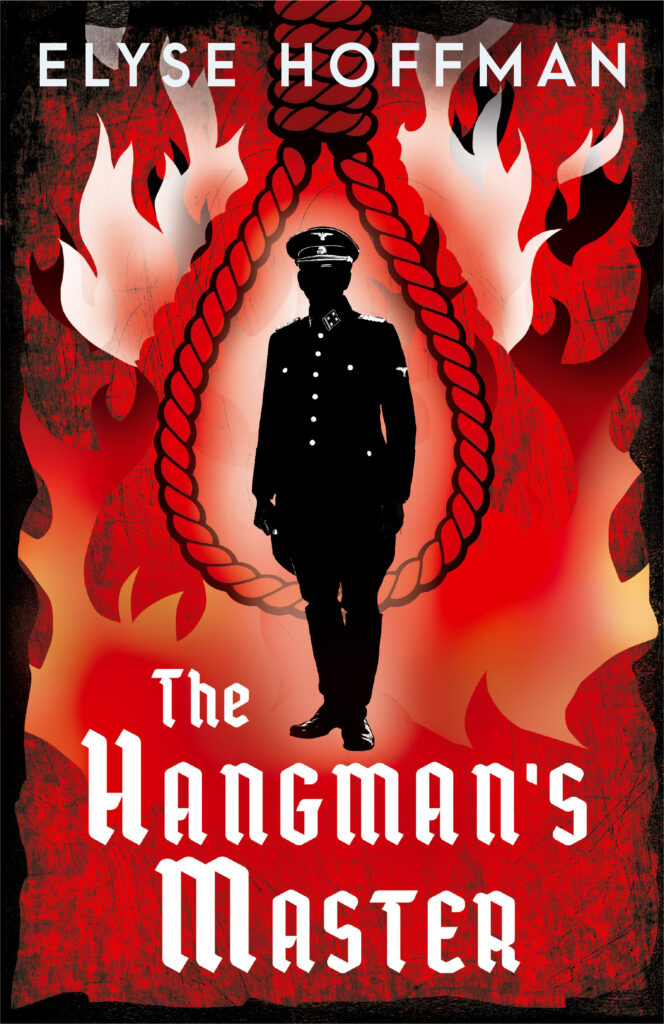My honest review of Elyse Hoffman’s The Hangman’s Master

I use to repeat over and over again that I’m a sucker for morally ambiguous characters, especially if they’re unapologetic about it, and once I find one I’m at loss for words.
Stefan Harkel is so convinced to be an asshole, and he repeats it so many times across the entire book, that you as a reader can’t help but think you see his point. At times, when he talks about his past in the SA, it sounds like one of those people at AA meetings trying to leave their past self behind, but then he right away acts in a way or says something else that makes you question his morality.
In fact, he never joined the resistance against the Nazi because he thinks that it’s the right thing to do based on some high moral ground: he does it out of spite and revenge for what he had to endure during the Night of the long knives. That night his life didn’t actually end, but yet a part of him died: the part of him that ignored the clear warning signs about a shift in German national socialists and the clear warning signs about his boyfriend.
You probably know the Martin Niemöller’s short poem “First they came for the socialists…”*, but Stefan didn’t know it for sure and so, as a reckless young man abandoned from his family, he didn’t see the dangers in the nazi ideology.
He didn’t think that for something so shallow and reality-denying such as fascism it is way too easy to change form and disguise itself in the form of patriotism and some twisted form of revenge against “the powers that be” and the “enemies of the land”. He didn’t know how easy it should have been to become one, until he did.
I remember going to Berlin in 2023, and as much as there are so many historical reminders that feel like a punch in the gut over there**, nothing compares to the feeling of slippery slope you get visiting the Topography of Terror. All the steps leading from the Weimar Republic to the Third Reich are exposed on panels, each one seemingly a small increment with respect to the panel before. But before you realise it, you’re deep in intolerance, racism and refusal of reason. I guess living in those years must have felt similar, except much worse (it’s something I hope I’ll never experience firsthand, but I’m not so sure anymore).
As you read The Hangman’s Master with the eyes of the 21st century you can’t help but cringe about how mean some of Stefan’s early views are, but also to feel sorry for the hard life he had. Yes, he brought a good deal of it on himself, but that’s not a reason to not feel the slightest bit of pity, same as you’d do with every German citizen who didn’t see it coming and was desperate and angry enough to be tricked by propaganda, only to become angry, desperate and afraid in a matter of a few years.
You see that there must be something good buried inside Stefan, and turn page after page hoping that it’ll finally show up. The inciting incident happens quite early in the book, as Stefan is contacted by the devil himself that offers him the chance to torture dead nazis. You begin. to wonder how he’ll use that power, if he’ll do something good with it or if he’ll just have some fun and some revenge.
As much as I’d liked a bit more nuance about how being in that position made him so much similar to the nazis he claimed to hate, it is also true that I was finally getting some genuine moral ambiguity and that maybe an exploration of that topic would have distracted me too much from the story being told. And before I realised, the story took a turn that made it impossible for me to put the book down.
The finale seems to be set up to allow for Stefan’s story to continue after 1943, and there’s no point in trying to hide how curious I am about what could turn out to be a very interesting books series.
Ok, a lot of blabbering for someone who claimed to be “at loss for words” at the beginning of this post. But as you’ll probably know, this is what happens when a story (be it a book, an article, a movie, a videogame, whatever) gives me so much to ramble about. This, after all, is exactly what great stories do. I hope this post made you a little bit more curious about this book that so cleverly mixes historical fiction and the supernatural, and don’t forget to let me know what you thought about it if you read it.
* even though it has been wrongly attributed to Bertolt Brecht
**it’s one of my favorite cities so far: Wien is beautiful, Berlin is interesting
Be First to Comment